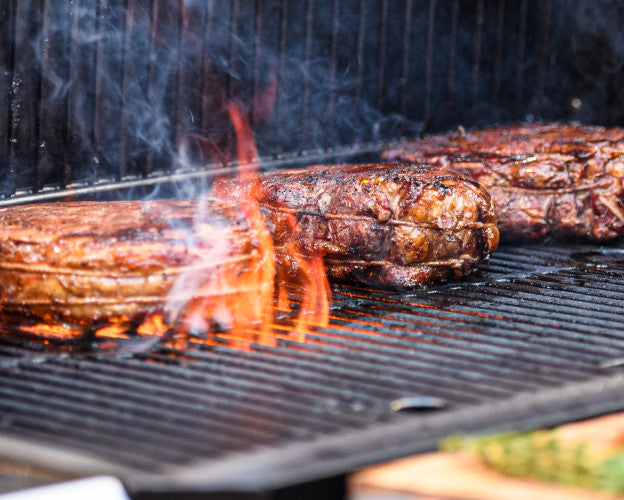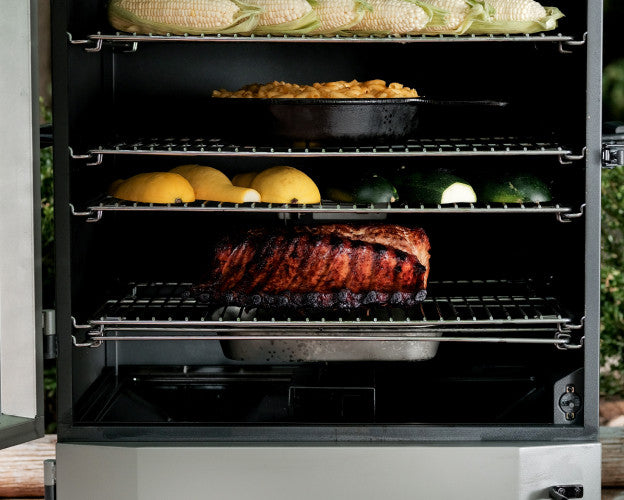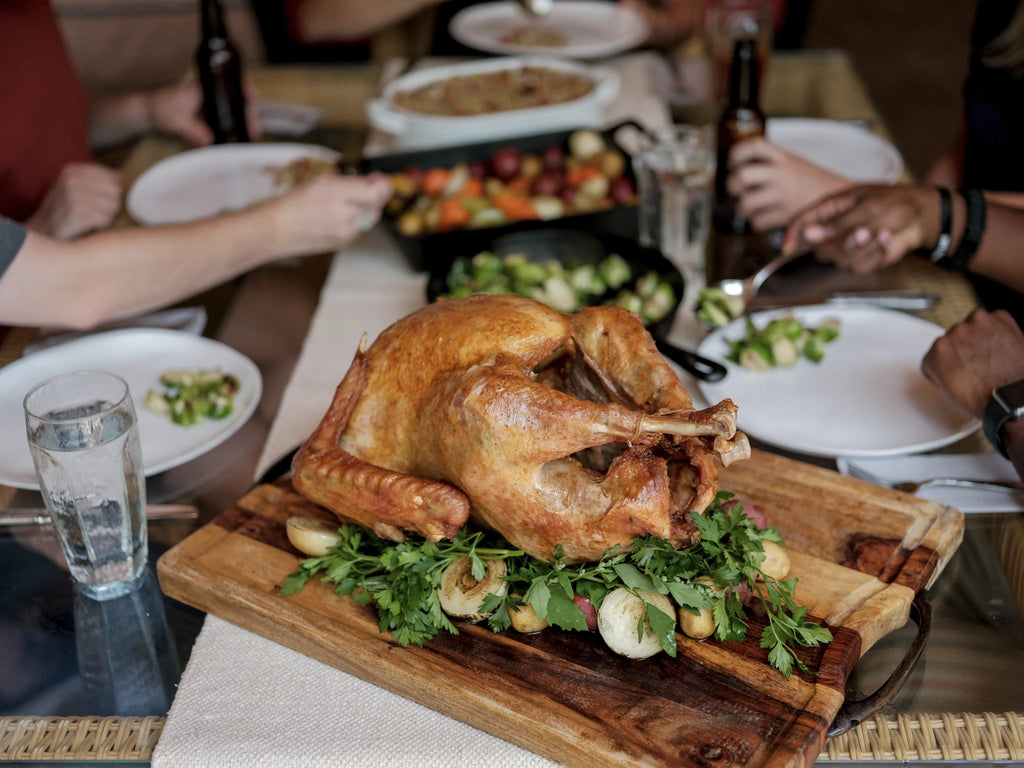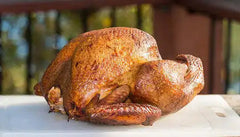Flavor Difference
Smoking, grilling, and frying are three different methods of cooking turkey, and each imparts a distinct flavor to the meat due to the cooking process and the choice of wood, seasoning, or oil used. Here's a brief overview of the flavor differences between the following methods.
Smoking
Smoking a turkey involves slow cooking it over indirect heat and smoke from wood chips or chunks. Common woods used for smoking include hickory, mesquite, apple, and cherry, among others. Smoking imparts a rich, smoky flavor to the turkey, which can vary depending on the type of wood used. The smoke penetrates the meat, giving it a smoky, earthy, and sometimes sweet flavor. The turkey's meat is often tender and juicy due to the slow cooking process.
Grilling
Grilling a turkey involves cooking it over an open flame or hot coals. You can use charcoal, gas, or wood for grilling, and the choice of wood or charcoal can influence the flavor. Grilled turkey often has a charred, slightly crispy skin and a smoky, seared flavor from the direct exposure to the flames. The meat can also pick up some smokiness from the grilling process, but it tends to be less pronounced than with smoking.
Frying
Frying a turkey is a method that involves submerging the turkey in hot oil and cooking it at a high temperature. The oil imparts a distinct flavor to the turkey. Fried turkey typically has a crispy, golden-brown skin and a moist, tender interior. The flavor is characterized by a rich, savory, and slightly oily taste, with a mild undertone of the oil used for frying. Some people season the turkey with herbs and spices before frying, which can enhance the flavor further. The choice whether to smoke, grill or fry is a personal choice! Each one would wow your guests!
Price Difference
| Fryers | Vertical Smokers | Smoker + Grill | |
|---|---|---|---|
| Price Range | $100-$200 | $100-$1,000 | $500- $4,000 |
| Popular Model |
 10 Liter Electric Fryer, Boiler, Steamer |
 40-Inch Digital Electric Smoker with Window and Legs |
 Gravity Series® 1050 Digital Charcoal Grill + Smoker |
Popular Techniques
Grilling Techniques
- Season the turkey with your choice of dry rub or marinade to add flavor before grilling.
- Use a drip pan under the turkey to catch any drippings and prevent flare-ups.
- Control the temperature by adjusting the grill's vents or burners to maintain a consistent temperature, usually around 325-350°F (163-177°C).
- Cook the turkey indirectly, turning it occasionally for even cooking, until it reaches the desired internal temperature. Use a meat thermometer to check the temperature in the thickest part of the thigh, which should reach 165°F (74°C).
Smoking Techniques
- Choose a smoker, such as a charcoal smoker, electric smoker, pellet smoker, or wood smoker, depending on your preference.
- Soak wood chips or chunks (like hickory, mesquite, apple, or cherry) in water or other liquids, and place them in the smoker to generate smoke.
- Season the turkey with a dry rub or marinade, and let it marinate for several hours or overnight for more flavor.
- Preheat the smoker to the desired temperature (usually around 225-250°F or 107-121°C) and maintain a steady temperature throughout the cooking process.
- Place the turkey in the smoker and cook it low and slow, allowing the smoke to infuse the meat with flavor. Use a meat thermometer to monitor the turkey's internal temperature until it reaches 165°F (74°C).
Frying Techniques
To fry a turkey, start by ensuring it's fully thawed and seasoned to your liking. Set up the turkey fryer on a stable surface and measure the oil according to the fryer's fill line. Preheat the oil to around 350°F, making sure the turkey is dry to avoid splattering. Carefully lower the seasoned turkey into the hot oil, using the provided basket or rack, and fry for about 3-4 minutes per pound until the internal temperature reaches 165°F. Monitor the oil temperature throughout, adjusting the heat as needed. Once done, lift the turkey out of the oil, let it drain, and allow it to rest for at least 20 minutes before carving. Always prioritize safety by following manufacturer instructions, never leaving the fryer unattended, and having safety measures in place.

















